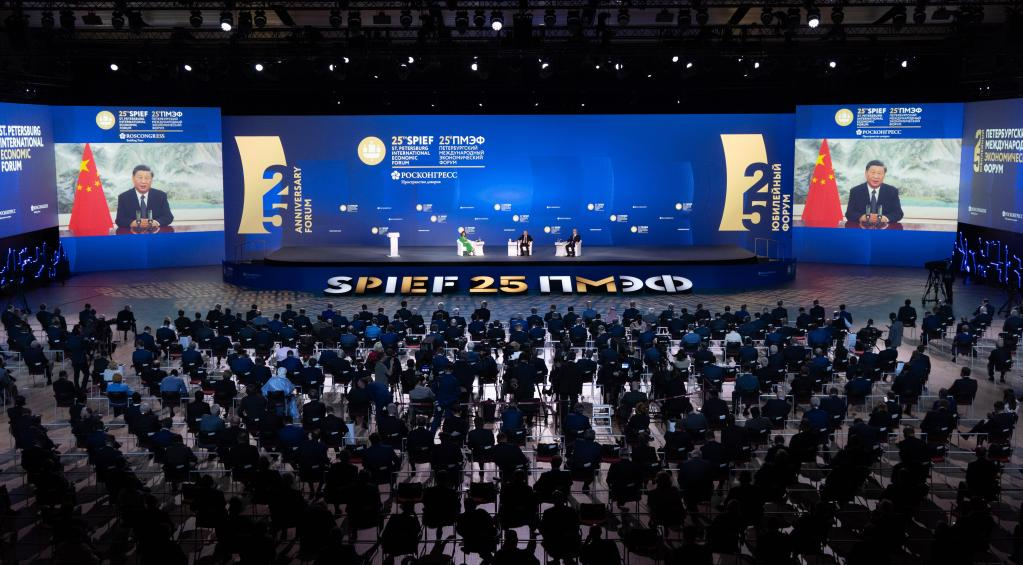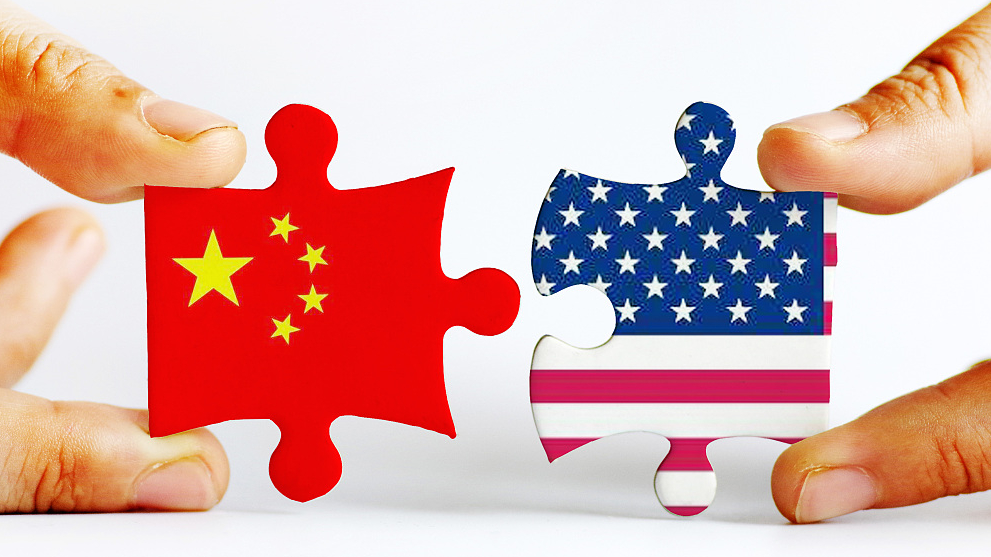
Chinese President Xi Jinping attends and addresses the plenary session of the 25th St. Petersburg International Economic Forum in virtual format upon invitation, June 17, 2022. /Xinhua
Chinese President Xi Jinping attends and addresses the plenary session of the 25th St. Petersburg International Economic Forum in virtual format upon invitation, June 17, 2022. /Xinhua
Editor's note: John Gong is a professor at the University of International Business and Economics and a research fellow at the Academy of China Open Economy Studies at UIBE. The article reflects the author's views and not necessarily those of CGTN.
The 25th St. Petersburg International Economic Forum, which is widely regarded as the equivalence of the Russian version of Davos, opened on June 15 amidst much controversy against the backdrop of the ongoing conflict in Ukraine. Many Western leaders boycotted the event. China, as a major power among the world's many countries that have taken a neutral stance on the conflict, participated nevertheless. Chinese President Xi Jinping delivered a brief speech at the plenary session of the forum on Friday via a video link.
Among the four key points President Xi mentioned in the speech, the first point deserves highlighting, as it touches upon a fundamental issue in the context of the Washington's unilaterally launched grand competition against China. Xi said the following:
"It is important to follow true multilateralism, and respect and support all countries' pursuit of development paths suited to their national conditions, and it is also important to build an open world economy and increase the representation and voice of emerging markets and developing countries in global economic governance."
The key point, about increasing the representation and voice of emerging markets and developing countries in global economic governance, is often nefariously portrayed as China's ambition to usurp the current rules-based global order, certainly including the global economic order for institutions like the WTO, the IMF and the World Bank, which admittedly were indeed established with the leadership of the United States after the World War II.
The Joe Biden administration frames the issue via ideological lenses, and claims that it is a battle between the world's democratic, liberal camp against the world's "authoritarian" camp, thus posing an existential threat to the Western way of life.
But Washington's propagandist narrative cannot be further from the truth. The dichotomy of the democratic, liberal world versus the "authoritarian" world would be laughable in the light of the torrential outpouring of documents and testimonies about the Capitol attack from the Congress' January 6 investigation commission.
No country is in a position to put a stamp on another country's political status, nor is it entitled to ordain a development path for another country to its liking. As President Xi said, countries pursue development paths suited to their national conditions.

China-U.S. relations. /VCG
China-U.S. relations. /VCG
Second, as stated many times in the past by Beijing, China has no intention of spreading its own political gospel throughout the world to engage in a competition of ideology with the United States. Washington well understands that, and its propaganda based on an ideological argument is misleading and not sincere.
The true reason is decidedly all about a realist concern that the expanding economic might of China and other developing countries is starting to shake the foundation of the West-monopolized global governance system.
Let's be honest and admit the fact. China, India and other emerging market economies' share of the world's total GDP has been steadily increasing, and the global economic epicenter is shifting to Asia. Of course, a larger global economic power demands a larger global political power, as reflected in the historic development path of the Unite States itself vis-à-vis the United Kingdom at the turn of the 20th century.
But demanding more voices and representation doesn't mean toppling the incumbent system. On the contrary, it is greatly in Beijing's own interest to maintain the current tremendously important international institutions such as the WTO. There should be some room for a compromise between China and the United States, where the former's interests should be respected and the latter's be still very much preserved, without getting into a needless Cold War type of competition that serves no one's interests.
(If you want to contribute and have specific expertise, please contact us at opinions@cgtn.com. Follow @thouse_opinions on Twitter to discover the latest commentaries in the CGTN Opinion Section.)

